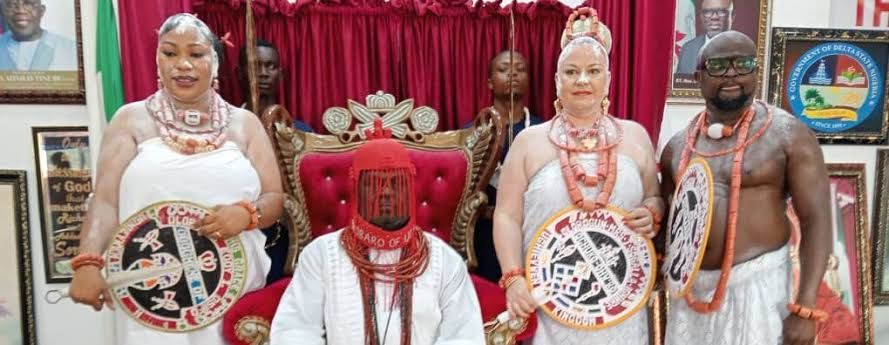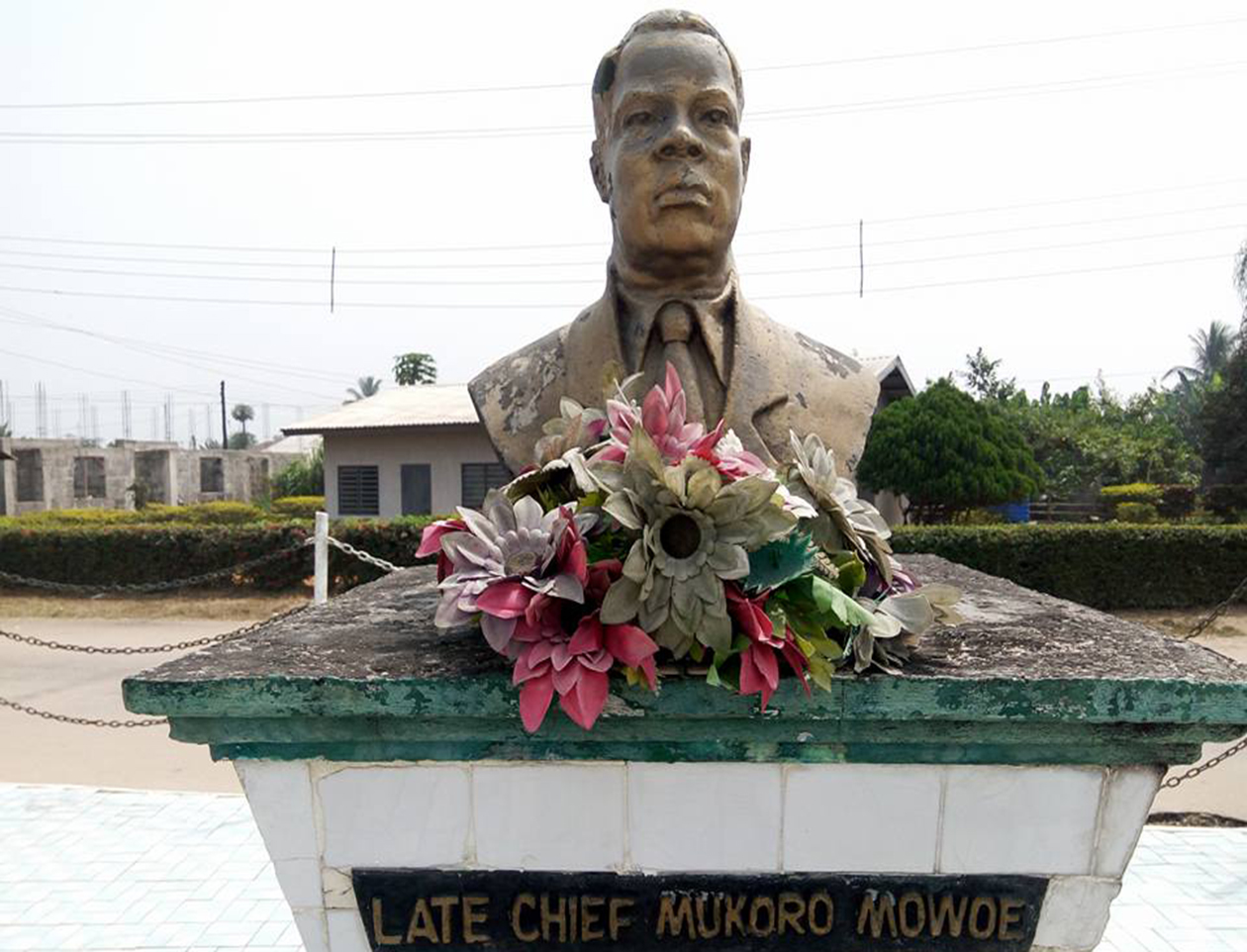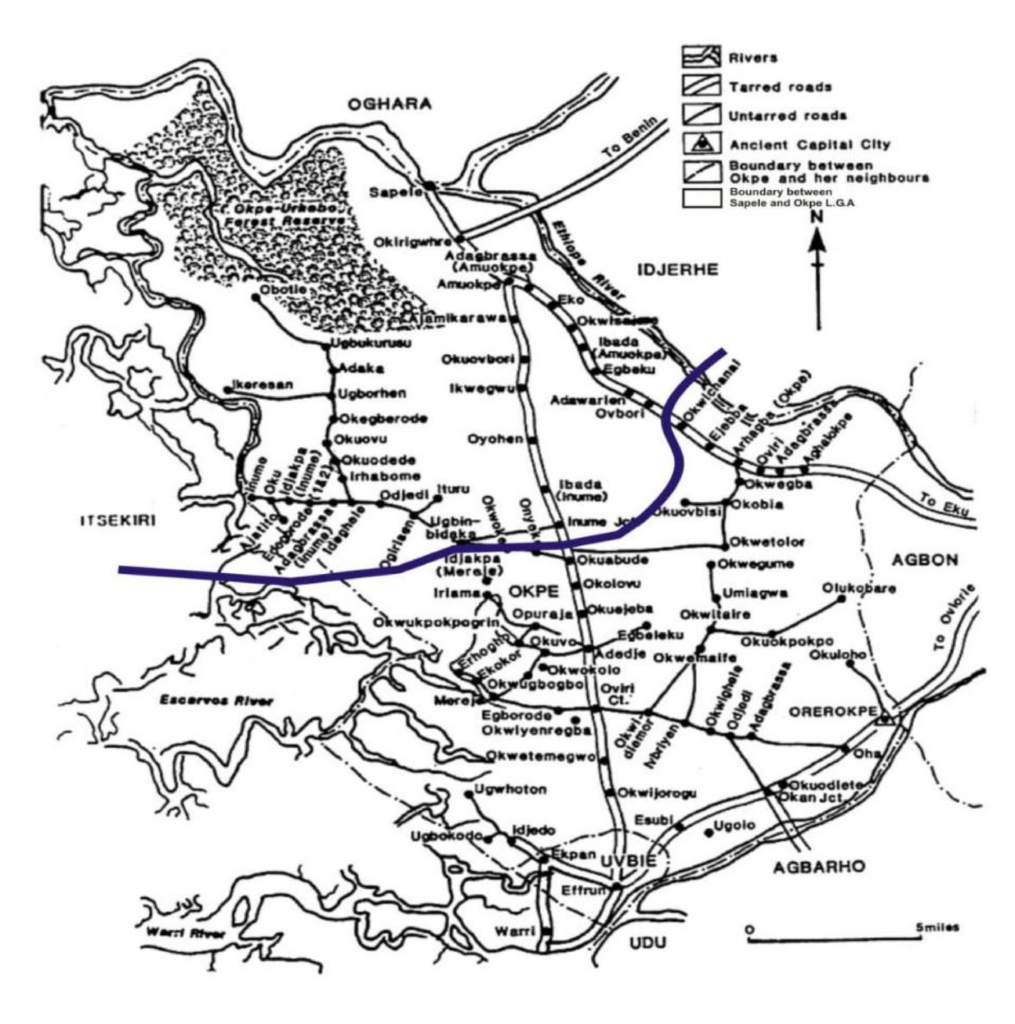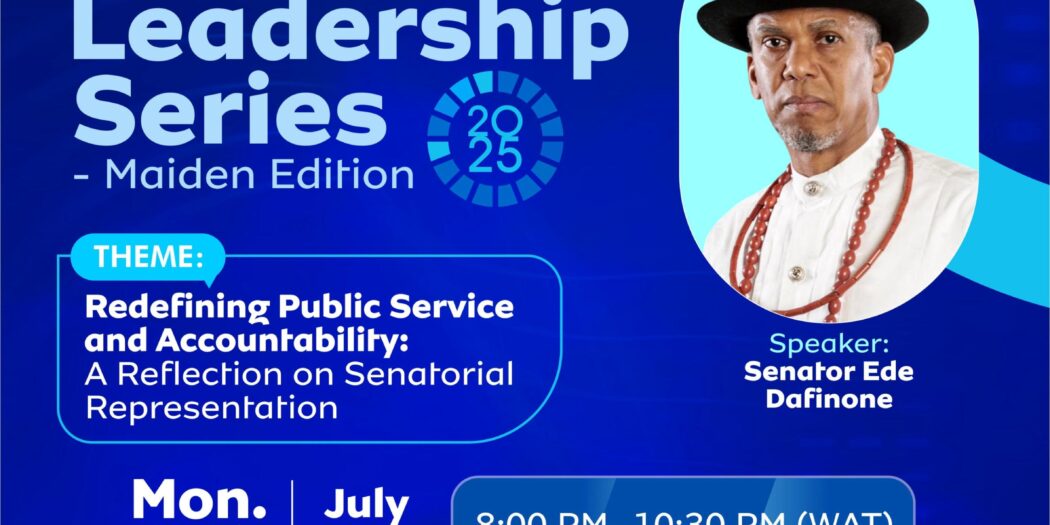
Celebrating 77 years of Chief Mukoro Mowoe’s legacy with the Urhobo Historical Society. Discover the relevance of his work.
Rt Hon (Revd) Francis Ejiroghone Waive, Member Representing the entire people of Ughelli North, Ughelli South, and Udu Federal Constituency, today in an event organized by the Urhobo Historical Society and the Mukoro Mowoe family in commemoration of 77 years of the home call of Chief Mukoro Mowoe (1890-1948), which began with a Thanksgiving Service at St Andrew’s Anglican Cathedral and culminated in a Seminar “The relevance of Chief Mukoro Mowoe in resolving Urhobo Present Challenges”. Delivered by Hon Waive.
It is indeed my honor and privilege to stand before you today as the Keynote Speaker at this year’s UHS Conference, having started many years ago as an errand boy for the late Prof. Peter Ekeh, the indefatigable founder of the Urhobo Historical Society. I was hoping you could permit me to express my gratitude for the opportunity and for my election to represent our people in Nigeria’s House of Representatives.
INTRODUCTION
The legendary Chief Mukoro Mowoe was born around 1890 in Urhobo land and had little formal education as he was largely self-taught. Mukoro Mowoe started out as a small-time trader, but by the 1930s and 40s, he had risen to become a successful general merchant, importer, and exporter. His business interests spanned palm produce, rubber, mining, building materials, and even shipping.
One significant fact about his wealth was that he never used it just for personal gain. He reinvested it into his community—financing infrastructure, helping others rise from poverty, and creating opportunities for progress.
In 1931, Chief Mukoro Mowoe co-founded the Urhobo Brotherly Society, which later became the Urhobo Progress Union (UPU)—an organization that remains central to Urhobo identity and advocacy. He became its first President-General in 1937 and used the platform to unify the fragmented Urhobo clans into one voice.
In 1946, he achieved another milestone by becoming the first Urhobo man elected to the Western Regional House of Assembly, representing Warri Province. It is on record that he used this position not for personal gain and prestige, but to fight for his people—tirelessly lobbying for schools, roads, and health care services.
Chief Mukoro Mowoe understood that education was the pathway to liberation. He helped establish Government College Ughelli and Urhobo College Effurun. He expanded teacher training programs in Abraka and Oleh and personally sponsored scholarships for underprivileged students. He was also instrumental in public works—pushing for roads like the Warri–Sapele highway, improving hospitals, and even supporting flood victims. A lesson for us, Parliamentarians today. His drive for self-reliance and collective progress laid the foundation for modern Urhobo land.
Nationalist and Cultural Advocate Mukoro Mowoe was not just a regional figure—he was a nationalist at heart- a member National Council of Nigeria and the Cameroons (NCNC) and worked closely with Dr. Nnamdi Azikiwe and other national figures.
On the 10th of August, 1948, Chief Mukoro Mowoe passed away after falling ill during a legislative session. His death was deeply mourned, not only by the Urhobo people but by the broader Nigerian public. Today, his name lives on in books, poems, schools, and in the hearts of a proud people. The Urhobo Progress Union has even proposed the creation of Mukoro Mowoe University, a fitting tribute to a man who made education his life’s mission.
URHOBO CHALLENGES IN THE DAYS OF MUKORO MOWOE.
Allow me to take us through a few of the key challenges Urhobos faced in the days of Mukoro Mowoe and how he mobilized to tackle them and the lessons they offer to us Urhobo people of today, In the time of Mukoro Mowoe, Urhobos faced significant challenges including limited access to education and opportunities in the colonial era, as well as navigating complex political and social dynamics with the British and other ethnic groups, particularly the Itsekiri.
1. Limited Access to Education and Opportunities:
The early colonial period in Southern Nigeria saw a lack of educational opportunities for Urhobos, hindering our participation in government and commerce.
This lack of education created a disadvantage in interacting with the British and other groups who had access to Western education.
Urhobos were seeking ways to overcome these difficulties and catch up with other groups.
2. Political and Social Dynamics with the British:
The British presence and policies impacted Urhobo governance and social structures.
· The Urhobo were not initially favored by the British rulers, leading to a lack of governmental resources for our development.
· Our people had to rely on community efforts and self-development initiatives.
3. Inter-Ethnic Relations, particularly with the Itsekiri:
The colonial era saw a deterioration in Itsekiri-Urhobo relations, with some Itsekiri chieftains exploiting their access to European resources to control trade and limit Urhobo participation.
· Mukoro Mowoe’s leadership was partly a response to these challenges, as he sought to unify and advance the Urhobo people in the face of these challenges.
· The Urhobo Progress Union (UPU), which Mowoe helped to establish, aimed to address these issues and foster Urhobo unity and progress.
4. Economic Disadvantage:
Urhobos, despite being land-based and producing valuable goods, were often cut off from direct trade with Europeans due to the influence of other groups like the Itsekiri.
This created an economic imbalance and hindered Urhobo advancement.
5. Internal Divisions and Challenges:
The Urhobo people also faced internal challenges in organizing and presenting a unified front, especially in the face of colonial rule and inter-ethnic tensions.
· Mukoro Mowoe’s efforts to unify the Urhobo people and advocate for their rights were crucial in addressing these internal and external challenges.
URHOBO CHALLENGES IN THIS DAY AND AGE
Urhobo people in Nigeria today face challenges including cultural identity issues, leadership disputes, political marginalization, and environmental degradation. Additionally, navigating the complexities of inter-ethnic relations, particularly within Delta State, and addressing issues like abandonment of agriculture, water insecurity due to oil and gas exploration, frequent and fatal farmer herders clashes, youth restiveness, danger of language extinction, erosion of traditional Urhobo values of respect for elders, hardwork, and the republican nature of the Urhobo people also pose significant hurdles. I always ask myself how Mukoro Mowoe would have reacted to these challenges.
1. Cultural Identity and Preservation:
Loss of Cultural Practices:
Traditional rituals, festivals, and practices, especially those related to burials and marriages, are becoming less prevalent, leading to concerns about the erosion of cultural identity and potential negative consequences. For instance, the advent of Home Movies has resulted in a dilution of Urhobo practices with those of the Igbo and even Yoruba
· Modernization vs. Tradition:
There’s a tension between adopting modern practices and preserving Urhobo cultural heritage, with some viewing traditional cultures as hindrances to economic development.
· Language Preservation:
The Urhobo language, like many indigenous languages, faces the threat of extinction as younger generations shift towards English and other dominant languages.
2. Political and Leadership Issues:
Marginalization and Representation:
Urhobo leaders and intellectuals should be concerned about our political representation and influence within Delta State and Nigeria. We must be deliberate like Chief Mukoro Mowoe in ensuring our best and brightest emerge as our political leaders, UPU leadership and traditional rulers. By the way how do the Asaba people mange to attract University Dons to their traditional stools and their patriotic sons into political positions?
· Inter-Ethnic Tensions:
Historical and ongoing conflicts with neighboring ethnic groups, particularly the Itsekiri and of recent the Ijaws over land, resources, and political power, contribute to instability and insecurity.
· Leadership Disputes:
Disputes over traditional rulership and the exercise of power within Urhobo communities also create divisions and hinder collective action.
3. Economic and Environmental Challenges:
Environmental Degradation:
Oil and gas exploration in the Niger Delta has led to pollution and environmental damage, impacting the livelihoods and health of Urhobo communities.
· Water Insecurity:
Contamination of water sources and inadequate access to clean water are major concerns, exacerbated by pollution and other factors.
· Economic Opportunities:
Urhobo people face challenges in accessing economic opportunities and participating fully in the modern economy, with some feeling that traditional professions lack prestige.
4. Social and Justice Issues:
Land Ownership Disputes:
Disputes over land ownership and control are a recurring source of conflict, both internally within Urhobo communities and with other ethnic groups.
· Justice System:
There are concerns about the fairness and effectiveness of the Nigerian justice system in addressing the needs and grievances of the Urhobo people.
· Communal Policing:
The use of traditional security personnel and communal policing methods alongside modern security structures is suggested as a way to enhance security in Urhobo communities.
THE NEED FOR A STRATEGIC AND PROACTIVE APPROACH:
There is an urgent need to define the Urhobo Interest or Agenda in the Nigeria of today. We must come up with our own development plan for Urhoboland, complete with timelines and achievable deliverables by key Urhobo Organisations and leaders. We must be deliberate in the use of modern technology and propaganda in our advocacy for a fair share of the Nigerian cake, to which we contribute so much to its baking. In the days of Mukoro Mowoe, school teachers and clergymen were recruited and used to push the Urhobo agenda. We must not abandon these strategic players as well as the modern étotas who our people listen to every weekend at ceremonies. Re-orientation of our people to Urhobo patriotism is key to our achieving greatness.
Strategic Alliances:
This is a call for Urhobo communities to build stronger alliances with other ethnic groups in Delta State and beyond to address common challenges and advance our interests. We certainly cannot run the race alone. Take, for example, the matters of Constitutional amendments, the creation of States, and other topical issues that require some form of collaboration.
· Proactive Engagement:
Urhobo communities are encouraged to be more proactive in pursuing our political and economic goals, rather than being solely reactive to external pressures. We must also consider the options of ‘give and take’ in our relationships with our neighbours. Perhaps this kind of approach would have prevented our loss of the true Delta State and it’s capital, the reduction of our population figures without any war or epidemic, the massive poverty among our people compared to others, and many such things that the Urhobos suffer today.
In Conclusion, let me quote an Urhobo who said…
‘The challenges we have faced have never defined us. Rather, it is how we have faced them—with dignity, strategy, and solidarity—that defines the Urhobo spirit. History has shown that the Urhobo people are not afraid of struggle. We are not strangers to sacrifice. And we are certainly not short of courage. Let us remember that the progress of the Urhobo Nation lies not in waiting for solutions from outside, but in building those solutions together, just as we have always done.
Thank you, Urhobo Historical Society, and God bless us all
Discover more from Urhobo Daily
Subscribe to get the latest posts sent to your email.










Leave a Reply